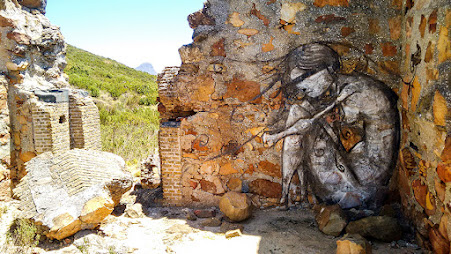The failure of multilateralism – and rise of corporate capture of the CBD
 |
| Image source: Street art Table Mountain ©JB Dodane, CC by AMC 2.0 |
The current state of the planet, and in particular climate change, biodiversity loss and land degradation, reflect on the legitimacy of environmental multilateralism such as the CBD.
The convergence of the multiple global ecological, climate and economic crises has not been met with the requisite urgent response and action. Instead, over the last decade especially, there have been increased rates of deforestation, alarming biodiversity loss, industrial agricultural expansion and abject state failure to act. The post 2020 Global Biodiversity Framework negotiations to date have been nothing more than offerings of weak and watered-down pledges and new iterations of deeply problematic, market-based solutions pointing to corporate capture.
Some of these corporate and false solutions include Reducing Emissions from Deforestation and Forest Degradation in Developing Countries (REDD+) schemes, payment for environmental services (PES), carbon markets, privatized conservation, and “net” approaches. These all offer various greenwashing environmental and social governance matrices on the pretext for the financial sector to align with environmental goals and self-regulate. This tragic state of compromised multilateralism points to inherent institutional failures of the CBD.
New conceptualisations of international cooperation are urgently needed. Critically, States need to support Indigenous Peoples and Local Communities to protect and conserve their local ecosystems. They are best positioned to do so. We call on Parties to do the right thing at this late hour, for people and the planet, by ensuring corporate and financial interests do not supersede all other interests, and jeopardize the CBD from achieving its objectives. Planet Earth is not simply providing resources to humans to be over exploited, monetised, commodified and financialised. We need to seriously consider what we give to the Earth, our service to its functioning and in turn, to our very own survival.
__________________________________________________________________________
The opinions,commentaries, and articles printed in ECO are the sole opinion of the individual authors or organizations, unless otherwise expressed.